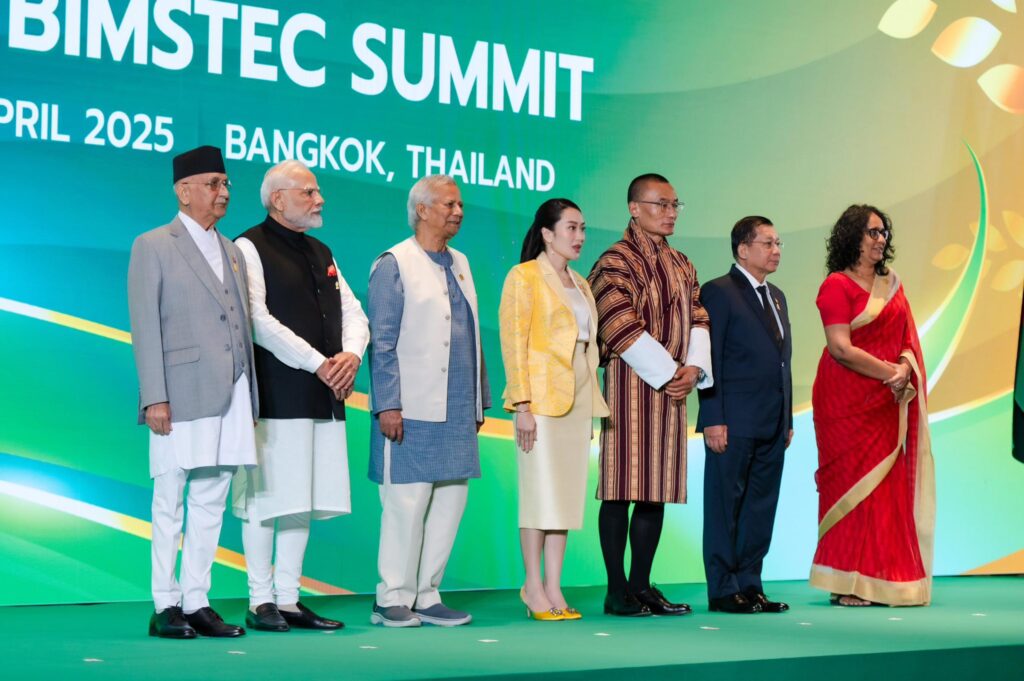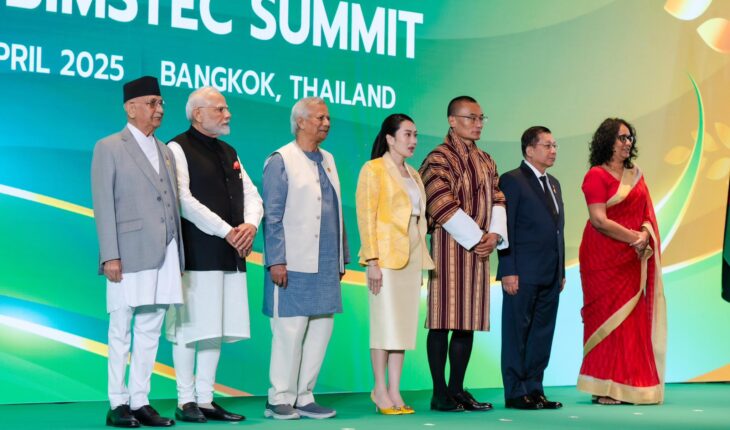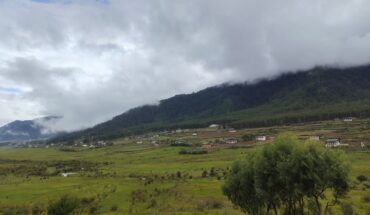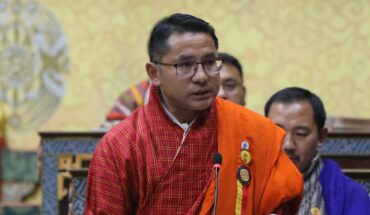
NGAWANG JAMPHEL
Thimphu
The 6th Bay of Bengal Initiative for Multi-Sectoral Technical and Economic Cooperation (BIMSTEC) Summit, was held on April 4, in Bangkok, Thailand.
The event is an important event for the seven countries Bangladesh, Bhutan, India, Myanmar, Nepal, Sri Lanka, and Thailand that make up BIMSTEC.
The member countries came together to discuss issues and commit to building a stronger, more connected region. The summit focused on improving cooperation in several key areas, including trade, disaster management, the environment, and better connectivity.
Prime Minister, Dasho Tshering Tobgay, spoke at the summit and reaffirmed Bhutan’s dedication to regional collaboration. He also expressed sympathy for Myanmar and Thailand after they were hit by a powerful earthquake.
Prime Minister Tobgay reflected on BIMSTEC’s nearly three decades of existence and encouraged member countries to act on their shared potential. He emphasized the need for greater economic integration, environmental protection, and better physical and digital connections across the region.
Bhutan is also eager to contribute to regional digital projects, like the National Digital Identity (NDI) and Intelligent Bhutan initiatives, while also learning from the experiences of other BIMSTEC nations.
Prime Minister Tobgay also introduced Bhutan’s vision for the Gelephu Mindfulness City (GMC), a project focused on sustainability and eco-friendly urban growth. This initiative, inspired by Bhutan’s leadership, is part of the country’s commitment to balancing development with environmental protection.
The summit reviewed progress in BIMSTEC’s seven main areas of cooperation: trade and investment, security, climate change, agriculture and food security, people-to-people contact, science and technology, and connectivity. Leaders approved six key documents that will guide BIMSTEC’s future.
The most important of these was the BIMSTEC Bangkok Vision 2030, a strategic plan aimed at creating a Prosperous, Resilient, and Open BIMSTEC (PRO BIMSTEC) by 2030.
This vision focuses on improving economic ties, strengthening connectivity, and ensuring the security and well-being of the people in the region. This long-term plan will help BIMSTEC become more connected and sustainable, benefiting all member states.
The summit also saw the adoption of the 6th BIMSTEC Summit Declaration, which reaffirmed the commitment of all member states to the goals of BIMSTEC and the BIMSTEC Bangkok Vision 2030. Along with this, the Rules of Procedure for BIMSTEC Mechanisms were introduced to make BIMSTEC operations more efficient and consistent.
The Report of the BIMSTEC Eminent Persons’ Group was discussed, outlining important recommendations for BIMSTEC’s future. These recommendations align with the BIMSTEC Bangkok Vision 2030 and focus on improving the organization’s effectiveness in dealing with regional challenges, such as climate change and economic inequality.
A new Agreement on Maritime Transport Cooperation was also adopted to improve shipping and trade between South and Southeast Asia. This agreement aims to reduce trade costs and improve logistics, benefiting the economies of the member states.
In response to the recent earthquake in Myanmar and Thailand, the leaders issued a BIMSTEC Leaders’ Joint Statement expressing their support for the affected countries. The statement emphasized the need to strengthen disaster management systems within the region to better respond to future natural disasters.
As the host country and current Chair of BIMSTEC, Thailand played a major role in shaping the summit’s outcomes. Prime Minister Paetongtarn Shinawatra emphasized Thailand’s theme for its chairmanship: “Prosperous, Resilient, and Open BIMSTEC.” She focused on the importance of regional cooperation, especially in disaster preparedness and recovery after the earthquake.
Prime Minister Shinawatra also highlighted how the Agreement on Maritime Transport Cooperation would benefit Thailand by reducing shipping costs and improving supply chains, which would help boost exports and the economy.
Thailand’s leadership in connectivity was also a key topic. The country is working to complete the India-Myanmar-Thailand Trilateral Highway, a major infrastructure project that will enhance trade and tourism between India, Myanmar, and Thailand. This highway is expected to significantly improve regional connectivity and economic growth.
Thailand’s Prime Minister also discussed the BIMSTEC Bangkok Vision 2030, emphasizing how the country is committed to helping implement this long-term plan, especially in areas like connectivity and trade.
In addition to the summit discussions, several administrative and financial matters were addressed, ensuring that BIMSTEC runs smoothly and effectively. Reports from various BIMSTEC centers were reviewed, and member states expressed their solidarity with Myanmar and Thailand in their recovery efforts.
Before the summit, Thailand hosted the 25th BIMSTEC Senior Officials’ Meeting (SOM) on April 2, 2025, in Bangkok. This meeting helped set the stage for the summit by discussing important documents and ensuring that all member states were aligned on the expected outcomes.
The adoption of the BIMSTEC Bangkok Vision 2030 and other key agreements marked a new chapter for the region.
The summit’s outcomes will help improve cooperation, connectivity, and sustainability in the region, bringing benefits to the people of all member states.





